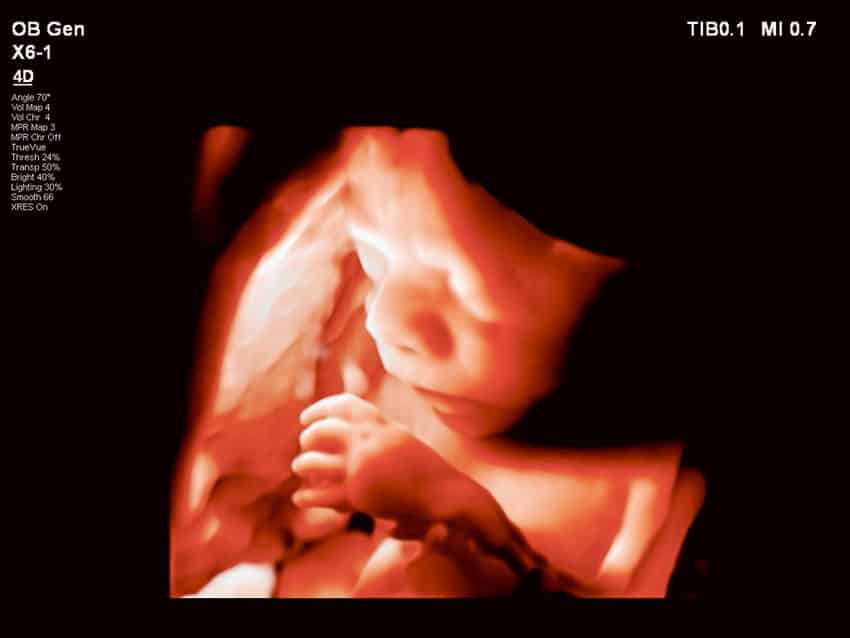A federal judge stopped South Carolina on Friday from protecting unborn babies from abortions once their heartbeat is detectable.
In February, U.S. District Judge Mary Geiger Lewis agreed to temporarily block the South Carolina Fetal Heartbeat and Protection from Abortion Act in response to a lawsuit filed by Planned Parenthood and the Greenville Women’s Clinic.
On Friday, she issued a preliminary injunction to extend her block on the law, WCIV 13 News reports.
Lewis, an appointee of President Barack Obama, was baffled that South Carolinans believe unborn babies should be protected from abortion under the U.S. Constitution.
“It is nothing short of baffling when Defendants here make the fanciful, misbegotten, and misguided argument that the Act is constitutional, although surely, all the while knowing full well that it is not,” she wrote in her ruling.
The South Carolina law prohibits abortions after an unborn baby’s heartbeat is detectable, typically about six weeks of pregnancy. Exceptions are allowed in cases of rape, incest or risks to the mother’s life. Abortionists who violate the law could face a $10,000 fine or imprisonment for up to two years.
REACH PRO-LIFE PEOPLE WORLDWIDE! Advertise with LifeNews to reach hundreds of thousands of pro-life readers every week. Contact us today.
If enforced, the legislation has the potential to save thousands of babies’ lives. The state health department reported more than 2,500 abortions after six weeks in 2019.
Planned Parenthood did temporarily stop aborting unborn babies after Gov. Henry McMaster signed the law in February, but it began abortions again less than 24 hours later when Lewis issued her first temporary injunction against the law.
In her ruling Friday, Lewis criticized pro-lifers for hoping that the U.S. Supreme Court may overturn Roe v. Wade and allow states to make their own laws about abortion again.
“The Court easily rejects such a notion. It has a much higher opinion of the High Court than that,” she wrote. “After all, law libraries are chock-full of judicial opinions affirming a woman’s right to abort a pregnancy before viability, although the authoring judges and justices of those decisions were and are personally fiercely opposed to women having such a right. Those judges’ and justices’ individual opinions on the matter was and is immaterial to their rulings. And, that is as it should be.”
Earlier this month, state Attorney General Alan Wilson defended the pro-life law in court, telling Lewis that a “heartbeat is a key indicator of human life. As set forth in the General Assembly’s findings the presence of a heartbeat is a sign that the fetus is highly likely to survive until live birth,” according to The State.
A number of states have passed heartbeat laws in recent years, but most have been banned from enforcing them due to legal challenges by abortion activist groups. Other states with heartbeat laws include Georgia, Iowa, Kentucky, Mississippi, Missouri, North Dakota, Ohio and Tennessee. However, all of the states have been blocked from enforcing them by court orders.
Polls suggest many Americans support strong limits on abortion. A 2019 Hill-HarrisX survey found that 55 percent of voters said they do not think laws banning abortions after six weeks – when an unborn baby’s heartbeat is detectable – are too restrictive. Gallup polls also consistently have found that a majority of Americans think all or most abortions should be illegal.
Some pro-lifers have renewed hope that the U.S. Supreme Court will uphold an abortion ban and overturn Roe v. Wade. Others, however, are hesitant because of concerns about losing the court battle and being forced to reimburse pro-abortion groups for their legal fees.
Though the high court currently has a conservative majority, Chief Justice John Roberts, who was nominated by a Republican president, has sided with the liberal justices on a number of occasions.
In 1973, the Supreme Court took away the states’ ability to protect unborn babies from abortion under Roe v. Wade, and instead forced states to legalize abortion on demand. Roe made the United States one of only seven countries in the world that allows elective abortions after 20 weeks.








